SENSOR SWEEP: Eternal Love, Ultimate Canonization, Brass Underwear, and the Rise of the Futurians
Wednesday , 26, October 2016 Sensor Sweep 19 Comments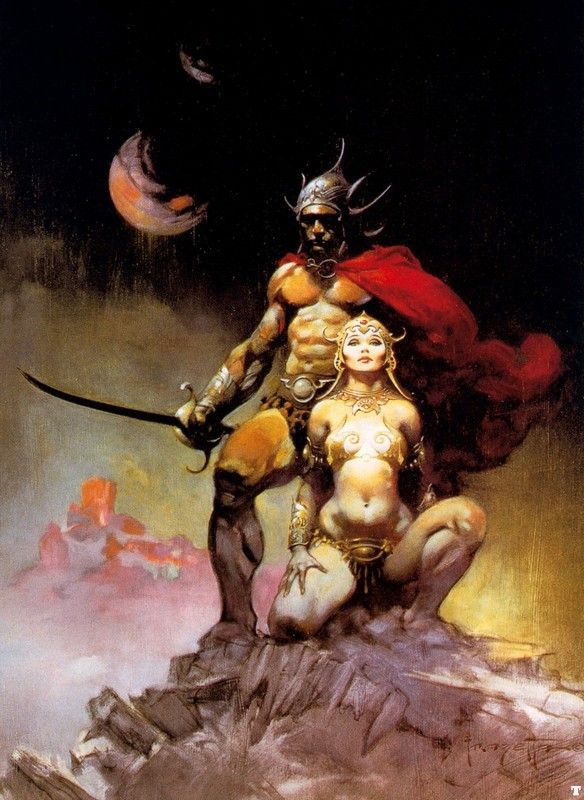 Appendix N (Civilized Bears) Edgar Rice Burroughs: A Tribute to Tarzan’s Creator, A Personal Hero — “Why such fond memories of ERB’s yarns? They were fun to read, of course. That English Victorian morality of honour and loyalty and duty always felt right to me. Still does. ERB had a fantastic imagination and was at his best in make believe locales. And then there’s the Romance. I’ve read that we boys hated romance in our adventure stories. Not so! Every Western ended with our hero — lone marshal who has just shot down the outlaws set on destroying his town or young independent rancher who has defeated the rustlers hired by the crooked banker set on owning every spread in the valley — every hero gathering his true love in his arms for a kiss and promise of marriage. Guys love tales of eternal love, too. Back then we expected it.”
Appendix N (Civilized Bears) Edgar Rice Burroughs: A Tribute to Tarzan’s Creator, A Personal Hero — “Why such fond memories of ERB’s yarns? They were fun to read, of course. That English Victorian morality of honour and loyalty and duty always felt right to me. Still does. ERB had a fantastic imagination and was at his best in make believe locales. And then there’s the Romance. I’ve read that we boys hated romance in our adventure stories. Not so! Every Western ended with our hero — lone marshal who has just shot down the outlaws set on destroying his town or young independent rancher who has defeated the rustlers hired by the crooked banker set on owning every spread in the valley — every hero gathering his true love in his arms for a kiss and promise of marriage. Guys love tales of eternal love, too. Back then we expected it.”
Appendix N (PC Bushi) Dickson’s Dragon and the George — “When I stumbled upon Jeffro’s survey of the body, and Cirsova’s scattered writings on the subject, I took it for what I think it’s meant to be – a study of one source list of the roots of modern SFF. For some people there’s a gaming aspect to it; after all, the list is literally pulled out of D&D. That’s great – take inspiration from wherever you can get it. Look at the Bible – one of the oldest and most classic collections of literature we’ve got. Countless stories, turns of phrase, and cultural references draw from the Good Book, and yet how often do we hear criticism of Bible study? ‘I’ve already read the New Testament, why revisit that?'”
Appendix N (Black Gate) Horror and Swords & Sorcery — “Clark Ashton Smith wrote some of the most dread-soaked stories in S&S. With lapidary prose, Smith composed stories that are almost suffocating in their intensity. In ‘Empire of the Necromancers,’ two foul wizards revive a whole nation of the dead to serve them at their pleasure. In ‘The Testament of Athammaus,’ a demonic bandit wreaks increasing degrees of terror on the city of Commoriom when his sentence of beheading fails to prove fatal. My favorite, the one that unsettles me the most, is ‘The Charnel God.’ In a city where all the dead are claimed by the priests of the titular Mordiggian, young Phariom’s wife is taken when she slips into a cataleptic state. He follows Mordiggian’s priests to his temple, on a mission to rescue her….”
Movies (John C. Wright) Batman: Bad Blood — “This is just bad writing. If she had been able to hold her own, or if Batman had greeted her with ‘glad you are here, I can use the assist’ her getting curbstomped and needing rescue would have been a tense scene. Or if she had realized that she was outmatched, and beat a retreat when ordered to, and been overtaken and overwhelmed, that would have been tense. But a character who mouths off to the Batman, is told she is getting in the way, then says she needs no help, and then does need help and does get in the way …. well, at that point, before the opening credits even roll, I am already rooting for the Society of Assassins.”
Appendix N (Mutation Apocalypse) Meditating on Medieval Bestiaries — “The Tolkienesque Orc appears to derive from the words orcþyrs or orcneas, related to the term orco (ogre), ultimately believed to be derived from the Roman Orcus. This type of ‘Orc’ also appears in Orlando Furioso, as a blind, cannibalistic giant that cannot be killed.”
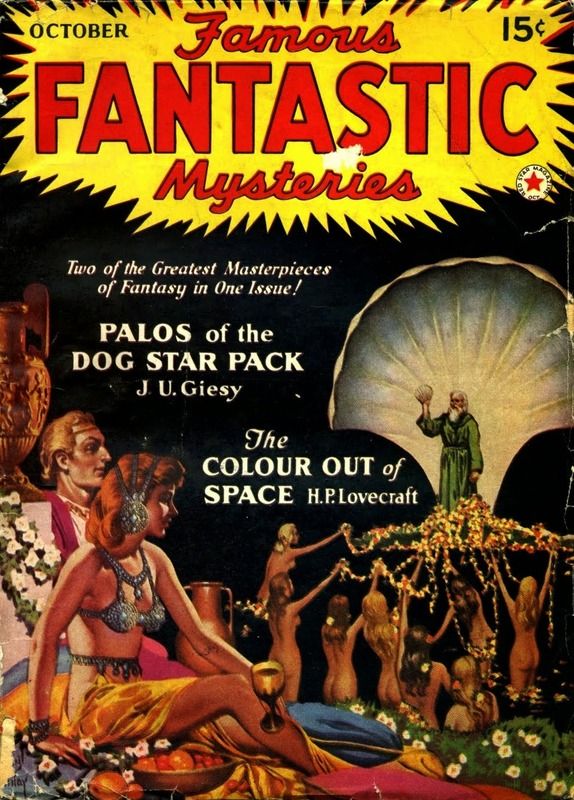 Pulp Revolution (The Future Fire) Cirsova: Heroic Fantasy and Science Fiction Magazine #2 — “There are several other stories I have not mentioned, including one or two that are genuinely terrible, barely coherent, or relying on racist stereotype, but the content on the whole is generally coherent—neither outstandingly original nor low quality. Readers who would rather avoid any fantasy that could have been written later than the 1970s will certainly welcome this new small magazine. The editing is decent, the management of the publication clearly serious and competent, so we should expect Cirsova magazine to grow and flourish for some years to come.”
Pulp Revolution (The Future Fire) Cirsova: Heroic Fantasy and Science Fiction Magazine #2 — “There are several other stories I have not mentioned, including one or two that are genuinely terrible, barely coherent, or relying on racist stereotype, but the content on the whole is generally coherent—neither outstandingly original nor low quality. Readers who would rather avoid any fantasy that could have been written later than the 1970s will certainly welcome this new small magazine. The editing is decent, the management of the publication clearly serious and competent, so we should expect Cirsova magazine to grow and flourish for some years to come.”
Books (Stuff I Like) Haunting Short Story Collections — “This is an amazing book, and not just because dozens of these authors and stories were completely new to me. The VanderMeers set out to survey the evolution of not a genre, but a style. Recently, Raphael Ordonez wrote: ‘a genre is a dead thing, a pigeonhole in a commercial classification system depending on the presence or absence of various material elements.’ That is exactly what The Weird rejects utterly. This book is filled with the scary, the creepy, the mad, and the bizarre. Like the book coming up, this should be part of any horror reader’s library.”
Appendix N (Puppy of the Month Club) Amber Diceless: Appendix N Taken to the Next Level — “While the diceless game mechanics proved off-putting to many gamers, this rule set would prove to be a precursor to a whole RPG movement dedicated to promoting more story based games that rely less on chance than on narrative control. Now commonly referred to as story games, they represent a full blown niche of their own within the larger RPG hobby. While there may have been diceless games before Amber, none were as large, as well received, or enjoy the continuing cachet of Amber Diceless, which still boasts of periodic conventions dedicated solely to its play.”
Pulp Revolution (Cirsova) Red Sun Magazine Issue 1 — “While Red Sun is not ‘retro’ or ‘pulpy’, it IS story-driven and action-packed Sci-fi. No fluffy think pieces or grim nihilistic tableau that don’t go anywhere. Red Sun contributors write the sort of stories I’d welcome in Cirsova, and Red Sun is the sort of publication that I would suggest my own contributors submit to when they have more stories than I have space for (I promise to only be a little jealous), and that’s really the highest recommendation I could give them.”
Appendix N (The Atlantic) H. P. Lovecraft: Genius, Cult Icon, Racist — “In 1999, Penguin published its first ‘Penguin Classics’ collection of Lovecraft’s work, and, in 2005, the Library of America published its own volume. This, Joshi says, marked the author’s ‘ultimate canonization.’ ‘He was in the canon of American literature right there with Poe and Hawthorne and Melville and Henry James and Willa Cather and Edith Wharton,’ he said. ‘He had made it.'”
Gaming (Twitter) Lewis Pulsipher — “I think RPG fandom is one of those gaming segments where there is a lot more playing than buying. Compare with board/card where games seem to be made to last 1-3 plays before players (and buyers) move on to something else. The game segments of geek cons are dominated by TT RPGs, not other kinds of tabletop. Even video gives way to it.”
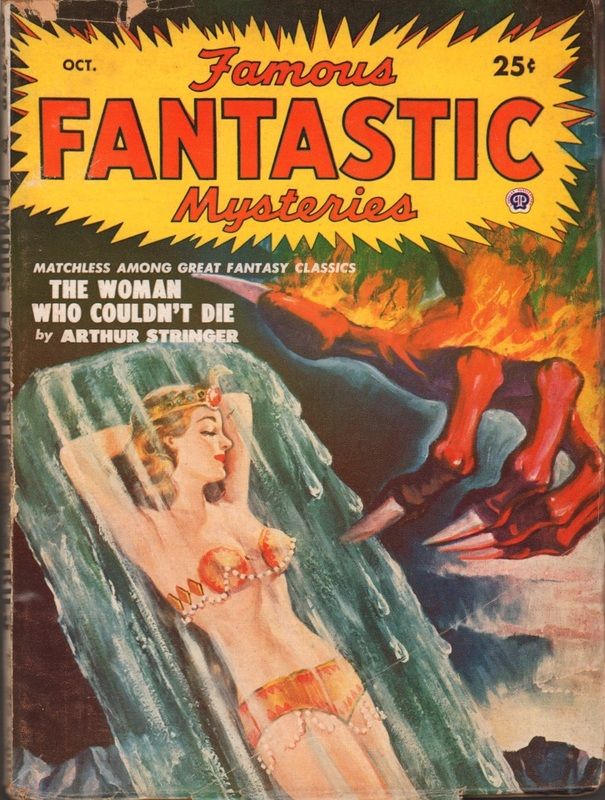 The Classics (Tor.com) Mary W. Shelley: Life After the Monster — “For eight years I communicated, with unlimited freedom, with one whose genius, far transcending mine, awakened and guided my thoughts. […] What a change! O my beloved Shelley! How often during those happy days—happy, though chequered (sic)—I thought how superiorly gifted I had been in being united to one to whom I could unveil myself, and who could understand me!”
The Classics (Tor.com) Mary W. Shelley: Life After the Monster — “For eight years I communicated, with unlimited freedom, with one whose genius, far transcending mine, awakened and guided my thoughts. […] What a change! O my beloved Shelley! How often during those happy days—happy, though chequered (sic)—I thought how superiorly gifted I had been in being united to one to whom I could unveil myself, and who could understand me!”
GURPS (Northport) GURPS Magic and Me — “One of Bonewits’ criticisms of Vancian (and most roleplaying game depictions of magic) is the ideas that spells, once cast, are forgotten, and, that they can be cast quickly. Heroposedthat one might, through a careful, lengthy, and preplanned ritual, build an ‘astral machine’ designed to generate a magical effect, and store energy for the effect, that the practitioner could then release later with a ritual shortened by autohypnotic trance; effectively building a spell in reserve before the adventure, and rapidly releasing it with an abreviated casting during it.”
Bro, Do You Even Read? (ESR) A Political History of SF — “Pre-Campbellian science fiction had bubbled up from the American pulp magazines of the 1910s and 1920s, inspired by pioneers like Jules Verne and H.G. Wells and promoted by the indefatigable Hugo Gernsback (who had a better claim than anyone else to have invented the genre as a genre, and consequently got SF’s equivalent of the Oscar named after him). Early ‘scientifiction’ mostly recycled an endless series of cardboard cliches: mad scientists, lost races, menacing bug-eyed monsters, coruscating death rays, and screaming blondes in brass underwear. With a very few exceptions (like E.E. ‘Doc’ Smith’s Skylark of Space and sequels) the stuff was teeth-jarringly bad; unless you have a specialist interest in the history of the genre I don’t recommend seeking it out.”
Pulp Revolution (Seagull Rising) Scanning the New Pulp Horizon — “Setting aside the usual disclaimers about observation bias and positive feedback systems, it’s worth noting that something is going on here. For some reason, the talk of new pulps, and the desire for more of them, is happening at a time when more people have the time, the wherewithal, and the inspiration to just shut up and do it themselves already. It might be the influence of the Puppies both Sad and Rabid. It might be Chuck Tingle inspiring us to kiss the sky. It might just be that the trickle of new material demonstrating proof of concept was enough to break a dam of long pent-up desire among the would-be pulp revolutionaries. Whatever the reason, brace yourself for incoming, because 2017 is going to be an exciting year for long under-served fans of science fiction and fantasy.”
Appendix N (The John Carter Files) Marketing the Legacy of Edgar Rice Burroughs’ Mars — “The key element to this angle of the marketing is WONDER, a celebration of the bolt of lightning which ignited such a rich landscape of inspiration. People need to be made curious about the uniquely brilliant work that has been largely forgotten amongst the crowd of influenced works. What if Sherlock Holmes had been largely forgotten amongst the crowd of mysteries and thrillers that he inspired…? What if Tolkien’s work had been largely forgotten amongst the crowd of fantasy worlds and imaginative epics he inspired? What if the original, and arguably the best, had been largely forgotten and was ripe to be rediscovered? Isn’t that an adventure that audiences could get excited about?”
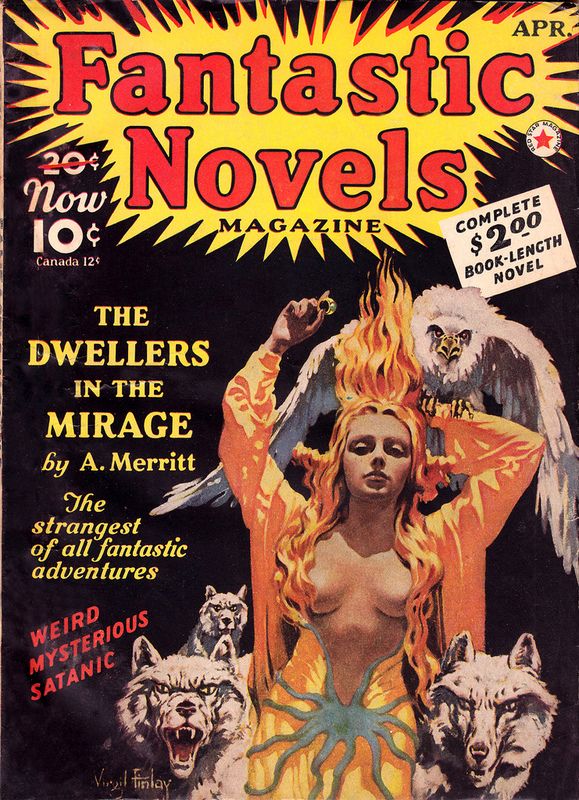 Movies (A Pius Geek) SFWA? More like STFU. WTF? — “Academia is rife with the sort of PC crap the SFWA is doing, but I haven’t noticed it in too many POPULAR books or movies. Sure, Hollywood cranks out this drek endlessly, but who watches all of it? 300 was a January release, and it made so much money, they started a sequel immediately (it only took forever to write and produce). So, certainly, people are teaching this stuff in the halls of academia, but when it comes to where the metal hits the road — where people spend their money — Batman, Superman, 300, any Marvel film, outperforms that sort of drek every single time. And if The Dark Knight Rises had a feminist message beyond ‘Anne Hathaway looks good in leather,’ I missed it (I actually thought the message was ‘Occupy Wall Street = Bad’).”
Movies (A Pius Geek) SFWA? More like STFU. WTF? — “Academia is rife with the sort of PC crap the SFWA is doing, but I haven’t noticed it in too many POPULAR books or movies. Sure, Hollywood cranks out this drek endlessly, but who watches all of it? 300 was a January release, and it made so much money, they started a sequel immediately (it only took forever to write and produce). So, certainly, people are teaching this stuff in the halls of academia, but when it comes to where the metal hits the road — where people spend their money — Batman, Superman, 300, any Marvel film, outperforms that sort of drek every single time. And if The Dark Knight Rises had a feminist message beyond ‘Anne Hathaway looks good in leather,’ I missed it (I actually thought the message was ‘Occupy Wall Street = Bad’).”
Appendix N (Black Gate) Vampires, Frozen Worlds, and Gambling With the Devil: The Best of Fritz Leiber — “Though I still find Leiber’s Fafhrd and Grey Mouser sword and sorcery stories his best works, The Best of Fritz Leiber is still an excellent representative collection of this top-notch master of the SF&F tale. He was a true artisan of words and story-telling. And despite my complaints about his satire, in his afterword he makes the point, more than once, that the story was always what mattered to him most: he was primarily concerned that the reader be entertained. He was clearly successful on that mark.”
Appendix N (ChicagoWiz’s Games) Rethinking X2 – Castle Amber — “This is where I probably get my grognard card yanked… I have read very little on Appendix N of AD&D 1st edition. You know, the sacred list of the holy texts of pulp fiction and sci-fi that the authors of D&D felt ‘were of particular inspiration to me.’ Yea, I didn’t read so many of those. A bit of Moorcock, Norton, Saberhagen and definitely Tolkein. But most of my inspiration for learning and playing D&D is from contemporary or really obscure sources. That means that going into the module X2 – Castle Amber, I had no real knowledge of Clark Ashton Smith and his Averoigne stories. I may have read a story or two of his from an anthology, but nothing that ever stood out in my mind. I approached this module on the basis of what it provided for me alone.”
D&D (The Intercept) I Am Fully Capable of Entertaining Myself in Prison for Decades If Need Be — “When I got to the jail unit at Federal Correctional Institution Fort Worth shortly after my arrest, then, I immediately started agitating in favor of a campaign of Dungeons and Dragons or whatever was available, to begin ASAP, with the wooden table in the little corner library to be requisitioned for our use. A huge black guy awaiting trial on complicated fraud charges happened to have the basic mechanics memorized; I drafted him to be the dungeon master. Soon enough I’d also managed to recruit a white meth dealer who was familiar enough with the game to help the rest of us create our characters, a large and bovine Hispanic gangland enforcer who wanted to try the game and was at any rate influential enough to help us secure control over the table, and a fey Southern white guy for atmosphere.”
Pulp Revolution (The Injustice Gamer) Injustice Quick Reviews 5 — “Catskinner’s Book by Misha Burnett- Mr. Burnett kindly supplied me with a copy of his book.This will trigger a lot of folks. There’s action, so it’s not even up the lefties’ aisle to begin with. There are serious conspiracy theories going on, and the Weird elements of this should help it appeal to the Appendix N fans. It’s got a bit of a twist, as it’s the protagonist is one of the Weird creatures. Hard to put down, though there’s one element that threw me for awhile, but it was explained well later on. Major crime- We’ve got a nice take on Weird fiction a bit in the Robert E. Howard vein.”
Pulp Revolution (Pulp Archivist) Anti-Pulp Revolutions — “Jeffro was wondering who killed the pulps, leaning towards Campbell. I’m leaning instead towards to the Futurians, who did drive the pulpier of the Campbell authors out of the spotlight and into obscurity. The insistence on Literature with Meaning is common to Socialist authors, having been first expressed in the 1890s, and the Futurians were all card-carrying believers in that anti-civilization pipe dream. Jeffro has suggested 1940 as the year when the wheels fell off of science fiction, which would coincide with the rise of the Futurians as an editorial force. Now, we might both be right, as there is overlap between Campbell’s authors and the Futurians, most notably in Asimov. If I am right, though, Worldcon fandom has been a blight on the genre since its inception.”
 Pulp Revolution (Wasteland and Sky) A small update — “I’ve started reading Cirsova #3 and I’m three stories in. So far I can say that if you like heroic fantasy and science fiction, or if you have enjoyed the first two volumes, this continues the trend. Where Mr Alexander keeps getting all these great stories is a mystery to me.”
Pulp Revolution (Wasteland and Sky) A small update — “I’ve started reading Cirsova #3 and I’m three stories in. So far I can say that if you like heroic fantasy and science fiction, or if you have enjoyed the first two volumes, this continues the trend. Where Mr Alexander keeps getting all these great stories is a mystery to me.”
Appendix N (JimFear138) Fafhrd & The Grey Mouser Book 1: Swords & Deviltry by Fritz Leiber (Audiobook Ver.) — “With Swords & Deviltry you will get precisely none of that. Oh, I’m sure that if you want to dig into the text and force your pet political issue into the story, you could totally do that and probably make a convincing case for yourself. However, that is not in the story itself. You have to put that there, because Fritz Leiber damn sure didn’t. And because of that there is no point in this story where I felt preached to, where I felt I was being talked down to, where I felt there was an attempt to make me feel stupid or immoral for not thinking a certain way/subscribing to a certain political ideology. It was just a fun ****ing romp through a fantasy land I hadn’t been to yet. Everything was new, exciting, and completely subverted everything I’d assumed fantasy literature should be and frankly got me out of the rut in my thinking I’d been in for years with regards to that subject.”
Appendix N (The Puppy of the Month Book Club) Nine Princes in Amber, Chapter 4 — “In fact, a quick perusal of the page count gives the impression that the story structurally was written in fifth of equal length, with chapters 1-3 as the first, 4 the second, 5, 6 and 7, and finally 8-10. Key events happen at the end of each section: Corwin’s announcement of his opposition to Eric, Random’s plan to restore Corwin’s memory, Corwin and Bleys’s declaration of war against Eric, and Corwin’s defeat. Additionally, Corwin regained his memories at the exact center of the book. Lining up key parts of the book at the 20%, 40%, 50%, 60%, and 80% points shows deliberate craftmanship by Zelazney and a textbook application of the five act structure.”
Pulp Revolution (Cirsova) This Could Be Our Most Ringing Endorsement Yet — “Huge thanks to JimFear for giving us such an awesome plug! Be sure to check out his own audiozine, Dimension Bucket, featuring some kick-ass dramatic readings and audio-plays. This guy has the kind of enthusiasm that Jeffro’s been talking about when it comes to the Pulp Revolution!”
Movies (PC Bushi) The Secret Formula of Kells — “The film weaves Christian history, dogma, and myth together with pagan Celtic legend in a thoughtful and effect manner. I won’t go into detailed analysis of the plot right now, but suffice it to say the setting – a secluded abbey surrounded by mysterious, magical woods, during the fearful age of the viking raids into England, is the perfect backdrop for the exciting, moving tale told here.”
Books (Black Gate) Into the Mystic: The Mask of the Sorcerer by Darrell Schweitzer — “The book is subtitled, ‘An Epic Fantasy.’ This is not true. What it is, is the exploration of a boy’s growth into power and maturity, written with real emotional depth. If that sounds too saccharine or simple for you, just remember, it’s got crazy monsters, terrible sorcerers, and a giant crocodile god of death in it as well, and is as creepy as all get-out.”
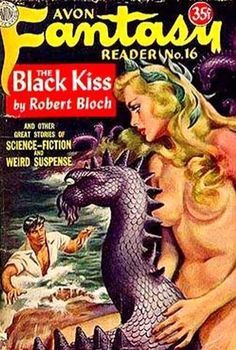 Pulp Revolution (The Pulp Archivist) Dean Wesley Smith’s Pulp Speed — “He describes various levels, up to Pulp Speed Six, or 2,000,000 original words per year. That’s more words in one year than G. R. R. Martin has published for the entire Song of Ice and Fire series over the course of twenty years. Those levels of production explain the pulps’ reliance on structures and formulas, as organization assists in creation. When you’re relying on one cent a word to pay the bills, streamlining the creative process is a must. Also of interest is that the padding of paperbacks began in the early 80s, right after the heroic fantasy explosion. The search for paperback profits contributed to the un-weirding of science fiction and fantasy by selecting against the shorter pulp novels.”
Pulp Revolution (The Pulp Archivist) Dean Wesley Smith’s Pulp Speed — “He describes various levels, up to Pulp Speed Six, or 2,000,000 original words per year. That’s more words in one year than G. R. R. Martin has published for the entire Song of Ice and Fire series over the course of twenty years. Those levels of production explain the pulps’ reliance on structures and formulas, as organization assists in creation. When you’re relying on one cent a word to pay the bills, streamlining the creative process is a must. Also of interest is that the padding of paperbacks began in the early 80s, right after the heroic fantasy explosion. The search for paperback profits contributed to the un-weirding of science fiction and fantasy by selecting against the shorter pulp novels.”
Pulp Revolution (Puppy of the Month Book Club) November 2016 Puppy of the Month: Thune’s Vision, by Schuyler Hernstrom — “Anyone who knows his pulps and the classics of writers like Robert E. Howard and Jack Vance will quickly see the similarities between Hernstrom’s style and those works. Although not yet a famous author, and it’s in fact quite an obscure book, if you are interested in the renaissance of Sword & Sorcery and fantasy in general you should read Thune’s Vision. Since the short story was also the cradle of fantasy, this collection is a great homage to those tales and the spirit that inspired the Appendix N and the work we do here at the Puppy Of The Month Book Club.”
Gaming (Ryan Markel) Our Community Chased wundergeek Out, And Perhaps That Bears Reflection — “What I will say is that as a community, we need to take a look at this, realize that people within our community have chased off yet another person who stepped up and said hey, something is wrong with what we are doing and how we treat people, and realize that when we see that kind of crap behavior, we need to call it out and condemn it for what it is. Because the more this happens, the greater the chilling effect that stops other people from raising their voices and bringing unique viewpoints to the table.”
Science Fiction (PC Bushi) Badass Womanly Women of SFF — “Star Trek Voyager gets a lot of flack, and many Trekkies seem to consider it the worst or one of the worst series. I’ll have to write a defense sometime, because it’s actually my favorite of the bunch. Janeway is Exhibit A for me. She exhibited the best qualities of Kirk and Picard. She was a skilled diplomat, leader, and scientist, and yet she was quick to kick ass and take names when shit hit the fan. I found Janeway’s femininity striking. Although she did have some romantic subplots that never went anywhere, Janeway was extremely maternalistic. When it came to protecting her crew, she was a mother bear. She was no physical powerhouse, but she repeatedly displayed great courage and emotional strength.”
D&D (War in a Box) Religion: Let’s Not Make a Big Thing Of It — “The important thing is that you are a holy warrior fighting evil. If that means you utilize a fantasy version of Christianity that isn’t strictly accurate, so be it. We use a fantasy version economics and biology that isn’t strictly accurate, too. They are close enough for tabletop, and so long as your warrior can adhere to a Christian worldview that’s close enough for the tabletop, so be it.”
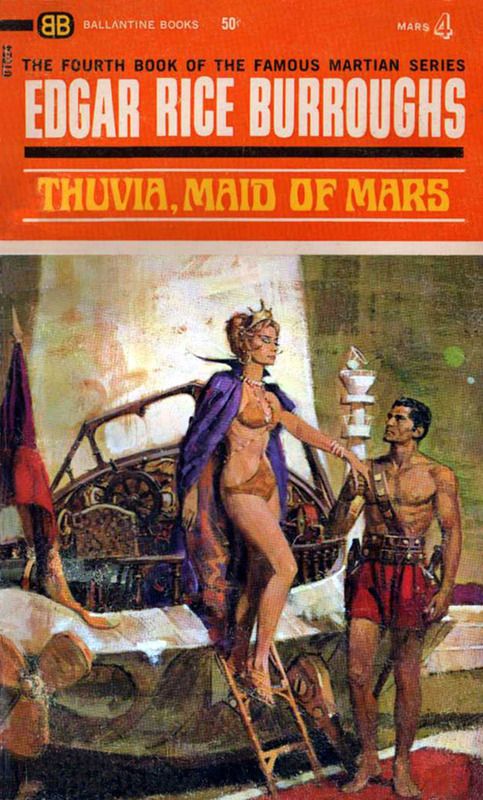 Pulp Revolution (Northport) Reviews and Mail — “Another set of publications I advocate for are the wonderfully pulpy issues of Cirsova Zine. I grew upo reading my way through my Dad’s collection of Sword and Sorcery books; when I got my DM’s Guide, I didn’t have to search for too many items from Appendix N, he had most of them. The collected authors of Cirsova 1 and 2 do an awesome job of bringing back the feel of adventure fiction penned around the future ruins of earth. Great stuff, all of it, and check out the blog – I am tempted to drop an ad for my work into issue 4.”
Pulp Revolution (Northport) Reviews and Mail — “Another set of publications I advocate for are the wonderfully pulpy issues of Cirsova Zine. I grew upo reading my way through my Dad’s collection of Sword and Sorcery books; when I got my DM’s Guide, I didn’t have to search for too many items from Appendix N, he had most of them. The collected authors of Cirsova 1 and 2 do an awesome job of bringing back the feel of adventure fiction penned around the future ruins of earth. Great stuff, all of it, and check out the blog – I am tempted to drop an ad for my work into issue 4.”
Television (BadNovelist.com) We need to talk about the godawful writing in Luke Cage (minor spoilers) — “Anyway, by episode six, Luke Cage is famous throughout Harlem. (You might think a bulletproof human would be world-famous, but apparently in a world that has gotten used to the Hulk and Thor, Luke Cage only rates as a local sensation.) He’s been spotted at several crime scenes and seems to be connected to organized crime figures. He’s gotten the attention of a crack local police detective. And yet, somehow no one has noticed he looks very much like a dangerous convict who has escaped from a maximum security prison. Not only that, but one of the main bad guys was in prison with him. These bad guys are desperate to rid themselves of the scourge of Luke Cage, who has laid waste to their criminal enterprise, but it doesn’t occur to anyone to drop a dime on his ass. It’s also baffling that despite Luke’s presence at these crime scenes, the cops have never dusted for Luke Cage’s fingerprints or called him downtown for questioning. Some of these lapses are explained later, sort of, but only well after the viewer is left to wonder if everyone in Harlem is blind (no offense, Matt) or irredeemably stupid.”
D&D (Polygon) Dungeons & Dragons is changing how it makes books — “If you look at science fiction follows, I think an arc that fantasy is following now. In the 50’s, science fiction was very iconic, and at least in movies, very much templated. You had the flying saucer, or the rocket ship, you had either the aliens who were clearly monsters — like the guy in the deep sea diving helmet wearing the gorilla coming to eat people or whatever. Or they were people in funny outfits who were very inscrutable and so much more advanced that we were, and that was your pantheon.”
Movies (Every Day Should Be Tuesday) Mary Shelley’s Frankenstein (1994) — “One of the problems with close adaptations is the tendency to transfer over the story’s sinew and bone but somehow forget the heart. (You see what I did there?) I briefly touched on this in my review of Luke Cage, but one thing about modern storytelling that I cannot abide is the rejection of anything but selfishness for human motivation. And so it is here. Frankenstein is driven not by an all-consuming desire for knowledge, growing and malforming until it becomes the Moby Dick to his Ahab, but by a desire to cheat the death of his mother and later his mentor, Waldman.”
Pulp Revolution (The Pulp Archivist) Writing for the Pulp Houses: Detective Classics — “If you want to describe a sunset, O.K. Describe it. But we’ll shove it at the end of a story as a footnote, and just put a star in the yarn so the reader can refer to it later after the story has been read.”
 D&D (B/X Blackrazor) B/X D&D – A Flaw of Design — “And yet this seems to be the way the game is designed. Looking at Moldvay’s own module X2:Castle Amber, the total treasure take is 252,560 (on average…there’s a little variation for the final reward based on the number of surviving characters). A quarter-million gold piece worth of treasure…most of it coinage. And X2 is designed for 6-10 players of levels 3-6. For an average sized party (8 player characters) each character will earns close to 32,000…enough that even a 6th level character (the high end) will advance a whole level by the end of the module.”
D&D (B/X Blackrazor) B/X D&D – A Flaw of Design — “And yet this seems to be the way the game is designed. Looking at Moldvay’s own module X2:Castle Amber, the total treasure take is 252,560 (on average…there’s a little variation for the final reward based on the number of surviving characters). A quarter-million gold piece worth of treasure…most of it coinage. And X2 is designed for 6-10 players of levels 3-6. For an average sized party (8 player characters) each character will earns close to 32,000…enough that even a 6th level character (the high end) will advance a whole level by the end of the module.”
Traveller (Tales to Astound) Making Traveller Subsector Maps with the Awesome Poster Maker — “For Subsector Maps, use the awesome Poster Maker from The Traveller Map. By entering data in the proper format you can create lovely, colored subsector (and sector) maps.”
Anything You Can Do… (The Guardian) The truth about boys and books: they read less – and skip pages — “A lot of people will argue that boys are much less likely to read story books – fiction – than girls and that’s one reason why girls are better than boys. But we looked at fiction and nonfiction reading and we found that, although it was true that boys tended to choose nonfiction more than girls, particularly at secondary level, they still didn’t read it better than girls. They were choosing nonfiction but they were not reading it as thoroughly and correctly as girls reading nonfiction.”
Wow, weird – I just came across that Political History of SF post today when I was Googling Campbell, and I was going to tweet you asking your opinion on it.
You heard it here first, boys: Why aren’t you reading your books correctly,. like the girls do? Don’t you want to be as good as the girls?
Re: D&D in prison, this was not so different from playing D&D in the 80s as an enlisted military member, especially before the Reagan pay raises. D&D was cheap, it was local (all you needed was a dayroom, barracks room or some kind of space with a table aboard ship) and you needed minimal play aids–a few miniatures, a surface that would take grease pencil, a set of dice and one hell of a lot of imagination.
Yeah, we got a lot of shit for being nerds and geeks–and back then they had no idea that geekdom would take over the world one day by computerizing the world–but we had more sustained fun than just about anyone.
Oh, dear. I made the CH blog twice now? That’s a sign of impending legitimacy. I’ll try to keep up to expectations.
Thanks for the link! I really enjoy these posts since I miss so much.
“mad scientists, lost races, menacing bug-eyed monsters, coruscating death rays, and screaming blondes in brass underwear.”
Isn’t entirely accurate and looks to intentionally miss some of the greater stuff about pulp scifi but even if true how does one call the above list a bad thing?
Does this guy hate puppies, pizza, the sound of children’s laughter and lazy days at the beach as well?
…
“this issue seems to come from an age before gender or representation had much of a place in escapist fiction.”
“including one or two that are genuinely terrible, barely coherent, or relying on racist stereotype”
This is one of Kubler-Gahdi’s stages of grief I think “then in a fit of depression they fight a straw man and then Cirsova wins” or something.
-
We’re working on a CH review of Cirsova magazine and conversation with Alex. Hope to see it posted late November.
That’s a whole bunch of links to my stuff – thanx! As usual, the this sweep’s a fun assortment of good stuff and nonsense to check out.
Quite a good assemblage of blog material.